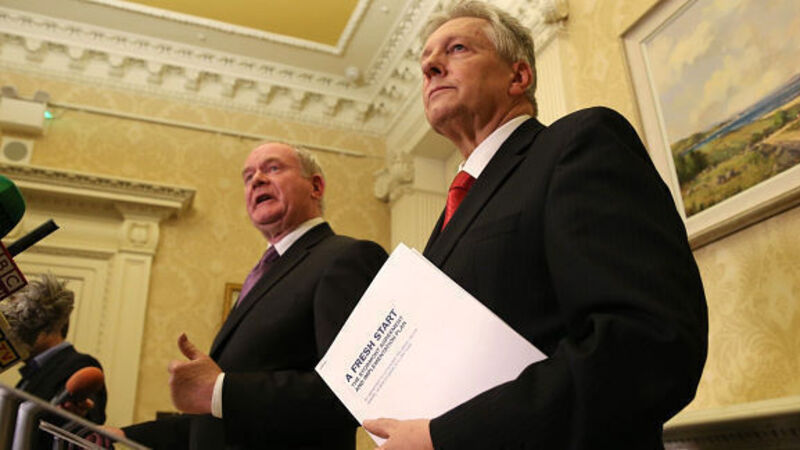Here are the key elements to the new Stormont deal

Here are the key elements contained in the 67 pages of A Fresh Start – The Stormont Agreement and Implementation Plan.
Try from €1.50 / week
SUBSCRIBEHere are the key elements contained in the 67 pages of A Fresh Start – The Stormont Agreement and Implementation Plan.
Section A: Ending Paramilitarism and Tackling Organised Crime:
Already a subscriber? Sign in
You have reached your article limit.
Annual €130 €80
Best value
Monthly €12€6 / month
Introductory offers for new customers. Annual billed once for first year. Renews at €130. Monthly initial discount (first 3 months) billed monthly, then €12 a month. Ts&Cs apply.
CONNECT WITH US TODAY
Be the first to know the latest news and updates
Newsletter
Keep up with stories of the day with our lunchtime news wrap and important breaking news alerts.
Tuesday, February 17, 2026 - 10:00 PM
Tuesday, February 17, 2026 - 5:00 PM
Tuesday, February 17, 2026 - 9:00 PM
© Examiner Echo Group Limited